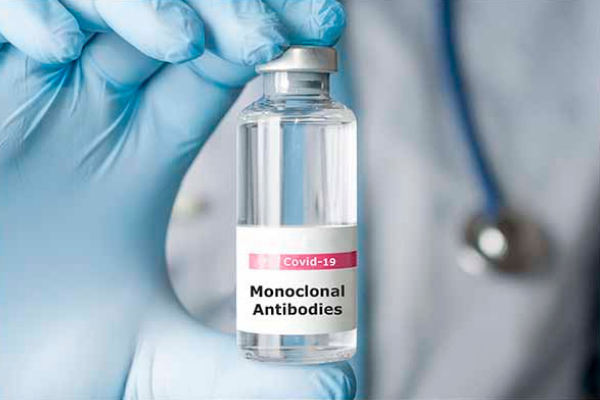
State health officials want to spread the word about Evusheld, a monoclonal antibody treatment that helps prevent COVID-19 infection among immunocompromised patients at high risk of progression to severe cases, including hospitalization and death.
Following recent worries about a shortage of COVID therapeutics in Texas, the state says it has good news: Evusheld is in strong supply. And it wants physicians to step up to administer the drug.
After the recent surge in COVID-19 cases, fueled by the omicron variant, exhausted Texas’ supply of monoclonal antibody treatments, medicine scrambled to find new therapeutics that were effective against the new variant and widely available. Unlike other therapeutics used to treat COVID-19, Evusheld is a preexposure prophylaxis: It helps prevent COVID-19 infections from taking root in immunocompromised patients, sparing them and an overburdened health care system.
“These individuals would get [Evusheld] before they even got COVID and hopefully prevent that from even happening,” said Manda Hall, MD, associate commissioner of community health improvement for the Texas Department of State Health Services (DSHS).
The Food and Drug Administration (FDA) issued an emergency use authorization for Evusheld on Dec. 8. Since then, DSHS has received more than 43,000 courses from the federal government and has distributed around half of them.
Given the state’s supply of Evusheld and the ongoing pandemic, DSHS is aggressively recruiting physicians and other health care professionals to administer the treatment to eligible patients.
“We are looking to increase the … pool of folks who are able to give these products,” Dr. Hall said.
Evusheld is authorized for people aged 12 and older (weighing at least 40 kilograms, or approximately 88 pounds) who are not currently infected with COVID-19 and who have not had a known recent exposure to an infected person, according to FDA. Additionally, eligible recipients must:
- Be moderately to severely immunocompromised due to a medical condition or immunosuppressive medications or treatments; and
- Have not mounted an adequate immune response to a COVID-19 vaccination; or
- Are not vaccinated against COVID-19 due to a history of severe adverse reaction to a COVID vaccine or component ingredients.
Evusheld is given as two consecutive intramuscular injections. Physicians caring for eligible patients can prescribe the treatment using the U.S. Department of Health and Human Services’ locator tool to identify an infusion center with availability.
As the primary data supporting the emergency use authorization, FDA cited a randomized, double-blind clinical trial that found Evusheld recipients had a 77% reduced risk of developing COVID-19 compared with those who received a placebo. Additional analyses have found that Evusheld recipients maintain reduced risk of developing COVID-19 for six months.
More information can be found in FDA’s fact sheet and FAQ document.
Emma Freer
Associate Editor
(512) 370-1383